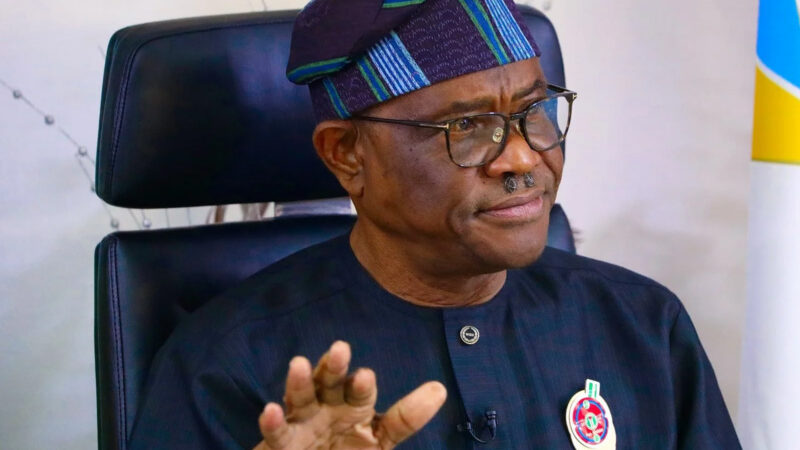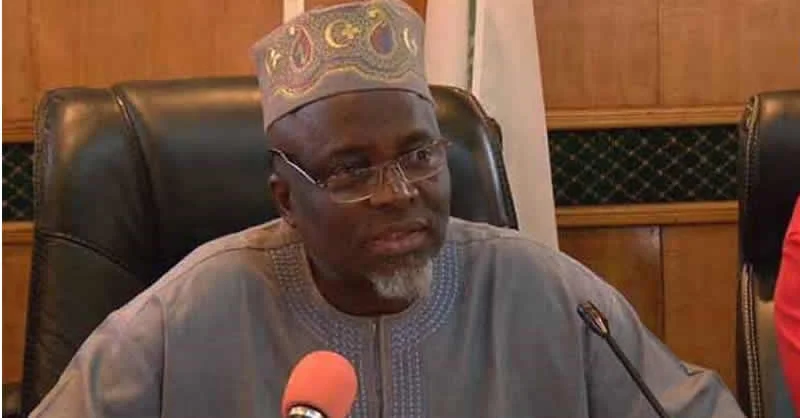SSA Calls for Enhanced Commitment to Women’s Empowerment

The Senior Special Assistant to the President on Sustainable Development Goals (SSAP-SDGs), Princess Adejoke Orelope-Adefulire has emphasized the necessity for increased investment and dedication to initiatives aimed at empowering women and promoting gender inclusion across Nigeria.
Orelope-Adefulire made this assertion in a statement released by her Special Assistant on media, Desmond Utomwen in observance of the 2024 International Women’s Day.
Aligned with this year’s theme, ‘Invest in Women: Accelerate Progress,’ and the campaign theme, ‘Inspire Inclusion,’ Princess Orelope-Adefulire stressed that sustainable development cannot be attained if women are marginalized.
The Presidential Aide called upon stakeholders from both the public and private sectors to reaffirm their commitment to the noble goals of women’s empowerment and inclusion for the collective advancement of Nigerian society and humanity at large.
She highlighted President Bola Ahmed Tinubu’s commendable efforts in advancing policies and programs promoting gender empowerment and inclusion under his administration, serving as a beacon for others.
Orelope-Adefulire, a former deputy governor of Lagos State, noted that the President has always been a passionate advocate of inclusion, diversity and empowerment.
“The President is a passionate believer in gender equality. It is his view that we cannot attain the prosperity we desire as a country without inclusion, empowerment, and treating our women right. He has not only committed himself to these ideals in words and speeches since he assumed office, but he has also demonstrated this in appointments and policies being implemented so far,” the Presidential Adviser said.
“We should all be inspired by the President’s commitment and rededicate ourselves to the task of women’s empowerment and inclusion as we mark this year’s International Women’s Day. I congratulate our women for witnessing another IWD,” she concluded.
Impact of Naira Devaluation, Interest Rates, and Dividend Sustainability:
In 2022 fiscal year, the Nigerian equity market offered commendable dividend
income to investors, with over 71 publicly traded companies across various
sectors, including banking, telecommunications, and consumer goods, collectively
disbursing over N1.5 trillion in dividends.
However, the outlook for the fiscal year of 2023 presents a more sobering picture,
largely attributed to the currency devaluation and high interest rates.
The devaluation of the Naira has triggered foreign exchange losses and high
interest expenses on loans, exerting considerable pressure on companies'
financial performance.
Consequently, the sustainability of dividend payments for the 2023 fiscal year and
beyond appears grim. Many companies may struggle to maintain previous
dividend payment levels as they grapple with the economic challenges posed by
currency devaluation and escalating interest rates.
While the fiscal year 2023 results for some listed companies are pending release,
results available paint a concerning picture, particularly within the consumer
goods sector.
Excluding BUA Foods, NASCON Unilever, and Flour Mills, FMCGs, such as
International Breweries, Nigerian Breweries, Guinness, Dangote Sugar, Cadbury,
Nestle, and PZ, reported loss.
These companies reported an accumulated loss after tax of N379 billion and an
average negative earnings per share of 21.89., with PZ, Cadbury, and Nestle
recording negative shareholders’ fund.
Given the reported loss and negative earnings per share, sustaining dividend
payments for 2023 fiscal year may pose significant challenge.
It is important to note that these companies have paid dividends consistently for
the past four years. This could be the first time they might be unable to make
dividend payments to their shareholders, reflecting the profound impact of the
prevailing economic conditions.
In the telecom sector, MTN Nigeria, a major telecom giant, also faced the same
challenging year. The company reported a loss after tax of N137 billion and
negative earnings of N6.38 in 2023. This resulted in a depletion of retained
earnings and shareholders’ fund to negative N208.0 billion and N40.8 billion,
respectively.
2
Consequently, the company decided not to recommend a final dividend payment
for the period. It had approved interim dividends of N5.60. In the 2022 fiscal
year, it distributed both interim and final dividends amounting to N15.60.
While the dividend trend of some companies is indeed shifting towards non-
payment due to the confluence of currency devaluation and rising interest rates,
others have managed to uphold their commitment to shareholders by continuing
to issue dividends.
For instance, Dangote Cement recommended an increase in dividend to N30 from
earnings per share (EPS) of N26.47, compared to the N20 paid in the 2022 fiscal
year upholding its years of consistent dividend payment.
However, its peers, BUA Cement and Lafarge, due to the decline in profitability,
reduced dividends to N2 and N1.9 per share from N2.8 and N2 recorded in the
2022 fiscal year, respectively.
The reduction in dividends by BUA Cement and Lafarge suggests a more cautious
approach in response to declining profitability.
For the banking sector stocks, notwithstanding the CBN’s earlier directives to
banks not to use FX gains for dividend payments, investors still anticipate a
promising dividend for the 2023 fiscal year.
This expectation is probably hinged on the increase in the 2023 interim dividends
payment and the substantial increase in profitability recorded by the banks in the
first nine months of 2023.
Though some of them are yet to release their 2023 fiscal year, results from FBNH,
Fidelity Bank, FCMB, and Jaizz Bank, indicate growth in profitability and earnings
per share.
As we await the results of others, especially the Tier 1 banks, it is anticipated that
this growth trend will be sustained.
In this context, the banking sector stocks can serve as a portfolio buffer for
income-oriented investors.
Overall, the confluence of currency devaluation and rising interest rates has had
a profound impact on the dividend landscape for companies operating within
Nigeria.
The loss, negative EPS, and imbued dividends may have collectively contributed
to the deterioration of investor confidence as reflected in the share price
movement
3
For instance, companies like NASCON, PZ, Cadbury, Dangote Sugar, and MTNN
experienced robust share price gains year-to-date in 2023.
However, this upward momentum has been subdued in the current year, resulting
in a decline in share prices
Dangote Sugar, which recorded an impressive year-to-date share price gain of
255% last year, has witnessed a 19% decrease in its share price value this year.
As the companies navigate these economic headwinds, they must prioritize
financial prudence and adaptability to safeguard shareholder interests and ensure
long-term sustainability in an increasingly volatile market environment.
For investors, it is crucial to acknowledge that fluctuating dividend payments in
response to macroeconomic headwinds underline the reality that economic
conditions can affect companies' ability to sustain dividends consistently.
Also, understanding the importance of diversification across industries and
implementing prudent risk management strategies can help mitigate the impact
of fluctuating dividend payments and share price decline.







